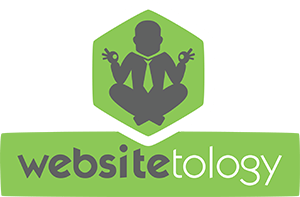The best way to deliver your information to the world requires the best content management. We explore WordPress as one of the tools you can use. We stick to Open Source solutions that run on Linux utilizing MySQL.
A lot of people still don’t know what a blog is- or why they should care.
The word comes from weB LOG, and was originally a way to chronologically publish your thoughts online. But that was so, like 2004. The technology has advanced at break neck speed, and now, the Blog software (which sits on your web server- not on your desktop) has evolved into an actively managed content management system. We prefer the Word Press engine- as do hundreds of thousands other people.
What does that mean?
It means that your entire web site is just a bunch of entries into a database- that are then manipulated by the software to do a bunch of really cool things:
- Allows your visitor to instantly search your entire site.
- Makes it easy for you to add content, edit content, delete content (manage your site)
- Automatically optimizes your content for search engines- and even tells them about every change you make.
- Your site will be 100% ADA compliant- so blind people (and search engines can see everything on your site)
- Gives your visitors the option to control the size of the font that they are reading
- Creates an RSS feed so your readers can “subscribe” to your content- automatically being notified every time you change your site.
- Invites interactivity – allowing people to comment and discuss your content- thus building community.
- If all that isn’t enough, since the whole site is generated on the fly from a database (just like CNN, Amazon.com etc) you can change the whole look and feel with one click of a button- no long redesign.
The fact is- the word “blog” really needs to go away– and people need to just adjust to the idea of this is the new fangled way to produce and manage web sites.
These types of sites, when used by people who have just a basic understanding of web stats and how to use this software (like a blogosopher graduate) can be on the front page of Google- without having to pay for keywords or preferred position.
Roles and Capabilities « WordPress Codex
Since WordPress 2.0 came out, I’ve been meaning to look this up. Since I handle all of the content management on most of the sites I’m involved in, I’m always logged in at the admin level. However, WordPress 2.0 has a refined version with 5 levels of access – that allows groups to edit and post together.
For an organization with many people who can contribute- a blog/site can risk changing it’s voice from post to post. Imagine reading the New York Times and having some articles posted by a writer from USA Today- it would stick out like a sore thumb. So- the administrator or higher level access people can serve as editors- making sure nothing goes public that isn’t in style.
Another function is hiding some content from the masses- having some content visible only to people who have been granted higher level access. This is ideal for sites that may be used to communicate to an internal audience as well as an external one- or for a fan club- that get’s access to special info.
The codex link above spells out these roles. This is just one other way that Word Press makes it’s easy to build a site that is more powerful than a conventionally built static HTML site.
Owen Winkler has built a plug-in for WordPress 2.0 to allow you to modify the roles- you can find it here: http://redalt.com/wiki/Role+ManagerÂ
http://lorelle.wordpress.com/2005/12/12/the-problems-with-tags-and-tagging/
One thing I haven’t gone into depth on in the seminar is tagging. The article link above will explain tags.
There is a bit of debate in the WordPress community about tags and categories right now, and to many of you it doesn’t matter.
I look at Categories as ways to organize your content- in a true relational way, so that you don’t have to put duplicate info in different places.
I look at tags as frequently searched keywords- that can be a category, or be in a category. While tags can help you increase your search results- and group you with others who are writing about the same subject- categories can help bring more readers in by collecting lots of keyword dense posts.
Tags are a lot like going to the Yellow Pages looking for plumbers- you get to the heading and all the competition are listed together. Categories are more like standing around with a bunch of friends asking which plumber to use- and them all saying use Bob. Bob can have a listing in the Yellow Pages too, but finding Bob because he has the most content in the category you are looking for on the web, ie. “drain cleaning in Dayton OH” makes Bob more likely to have your attention in a search.
There are a lot of different tagging solutions out there. I will try to write more about this soon.

